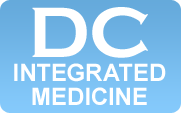Discover the Healing Power of Acupuncture
Acupuncture Coverage
Is Acupuncture Covered by Health Insurance?
Some insurance companies currently cover acupuncture costs, but others do not yet recognize the value of acupuncture. Each health policy must be reviewed to determine acupuncture benefits.
The AAMA (American Academy of Medical Acupuncture) is working to inform insurance companies and the public to standardize payment practices and accessibility to this type of treatment. You can help by insisting that your insurance company reimburse you for medically indicated acupuncture treatments before you accept their policy.
To locate a qualified physician-acupuncturist in your area, please contact:
The American Academy of Medical Acupuncture
4929 Wilshire Boulevard, Suite 428
Los Angeles, California 90010
1-800-521-2262 or 1-323-937-5514
www.medicalacupuncture.org
Call our friendly and dedicated medical team at 888-593-1009 today to schedule an acupuncture appointment.





